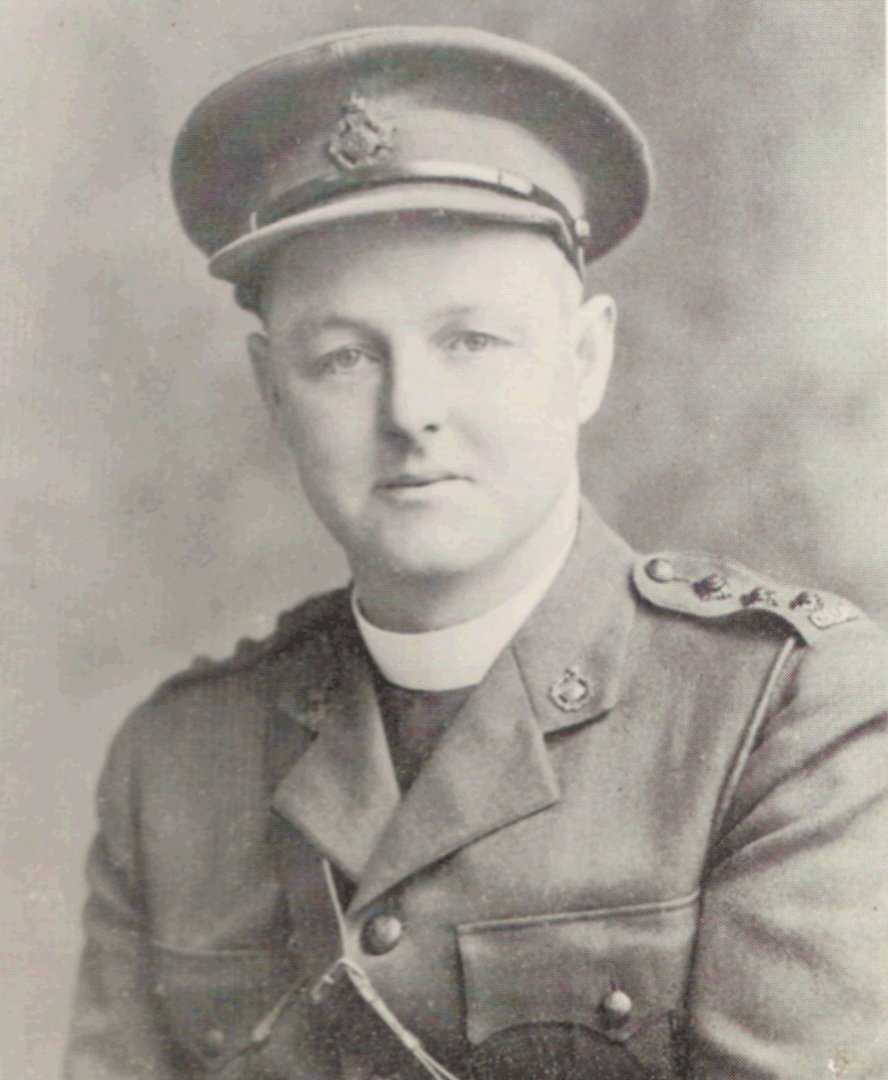
Rose (O’Reilly) Boulay
An Irish War Bride in New Brunswick
Submitted by Marie Grant

Rose Boulay at Remebrance Day ceremonies in Bathurst
I was born Rose Mary O’Reilly in County Cavan, Ireland on November 22, 1920, to Patrick O’Reilly and Mary Gaffney. I was one of a family of nine—three girls and six boys.
At the age of 17, I left home in search of employment. I initially went to Dublin where I stayed for one year. In September 1938 I immigrated to London, England with the intention of taking a nursing course, but ended up working different jobs.
In 1942 the war effort was on so I volunteered for war work. I was employed at The Royal Ordnance Factory in Staffordshire filling shells for aircraft.
During a visit to my sister’s in London at Christmas in 1942, I met my future husband, Sgt. Horace Boulay at a house party. We wrote to each other during the next two years and whenever he was on leave, he would go to London and I would visit my sister. We would go to the movies, to house parties and to the pub where most of the excitement was at the time.
When he asked me to marry him, I hesitated to accept his proposal. It was a big decision to leave my home and my family. Because of the restrictions during the war, (Southern Ireland being neutral, there were travel restrictions for army personnel) Horace was not able to meet my family.

Rev. Raymond Hickey, NSR
Father Raymond Hickey, chaplain of the New Brunswick North Shore Regiment, wrote to me telling me that he knew Horace’s family well and they were a good family. He said he hoped that Horace had told me about the conditions in Canada.
- With permission of her daughter, June Boulay
- Horace’s maternal grandmother was Sarah O’Hare whose family emigrated from Co. Tipperary, Ireland in 1800’s.
- Rose Boulay has three daughters, 4 grandchildren and 5 great grandchildren.
I followed my heart and we were married on April 29, 1944 at St. Agnes Catholic Church in Cricklewood, London.
A week after our wedding, Horace was sent to Southampton awaiting the invasion of Normandy. On June 8, he disembarked on the Normandy coast as a dispatch rider bringing messages to the front lines. From there he served in France, Germany, Holland and Belgium and earned the Military Medal for bravery in the field. In August 1945, at the end of the war, Horace returned home with his regiment.
During the next eight-month period, I returned to Ireland for a three-week stay to say good-bye to my family. Then on April 4, 1946, I boarded the Aquitania at Southampton and arrived in Halifax on April 10. I experienced a pleasant crossing. From there I boarded the train bound for Bathurst, New Brunswick. I will always remember the landscape of trees and snow. In fact a snowstorm prevented me from getting off the train in Bathurst so I had to continue my journey to Belledune. I was met by Horace2and my in-laws who welcomed me with open arms. I finished my journey by horse and sleigh to the family farm.
I quickly learned that Belledune has many Irish descendants so settling in the area in 1946 was not difficult. The place appeared quite like rural Ireland and I felt right at home.Life has been good in Canada. Although looking back, it was a very difficult decision for me to leave my homeland, I have no regrets.
Horace and I returned to Ireland on several occasions prior to his death on February 1, 1999. Since then, I have revisited my homeland with my three daughters and my granddaughters.3
For more information on war brides go to www.canadianwarbrides.com
NOTE: During the Second World War, 48,000 Canadian soldiers married young women from the United Kingdom and Ireland while awaiting deployment in England. Some of the girls were Irish. Most met their future husbands in England because Canadian soldiers were not allowed to travel to the Republic of Ireland during the war as it was a neutral country. But many did anyway including Rev Raymond Hickey, pastor of the North Shore Regiment. One fellow from Moncton, Francis Sullivan, snuck into Ireland to trace his family roots. He didn’t find out much as he was told that county Cork was ‘crawlin’ with Sullivans’, but he did meet Sheila Fields in Cork, and he married her and brought her back to New Brunswick after the war. Many of these brave women have been interviewed over the years. A definitive work by Melynda Jarratt of Fredericton, War Brides: The Stories of the Women Who Left Everything behind to Follow the Men They Loved (St Catherines: Vanwell Publishing Ltd, 2007) highlights the lives of 50 Canadian women who came to Canada as war brides. Rose Boulay was one of the war brides interviewed for this book. Rose met her Canadian husband Horace Boulay in London. Here is her story in her own words.1
